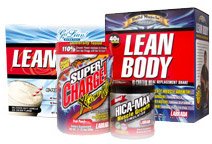
Hunter Labrada's 7 Tips For Gaining Quality Mass
It's close to impossible to gain muscle while burning fat, but you can do it with this training, nutrition, and supplementation advice.
If you've read my articles pertaining to nutrition in the past, you know I am a huge proponent of getting the majority of your daily caloric intake from clean, whole foods. While this is a no-brainer when it comes time to get lean, or when you begin getting ready for a contest, it is often lost on many people when they enter their bulking, offseason, or gaining phase of the year.
No More Dirty Bulking
More people than I care to count treat this period as a free pass to cram whatever they can, whenever they want, into themselves. Sure, they gain a lot of weight, but it's not just muscle—quite a bit of it tends to be fat. What's more, "dirty" foods—those high in trans and saturated fats—can negatively affect your cholesterol and other blood lipids. This elevates your risk of heart disease and stroke, since having high cholesterol—specifically, high levels of low-density lipoproteins—causes plaque buildup in your arteries and veins. This buildup won't happen overnight, but it's important to realize how detrimental to your health doing "dirty bulks" can be over the years.
Another reason I'm against the dirty bulk is that whenever it comes time to get in contest or beach shape, the amount of work and dieting you have to do is much more than if you had kept it clean. At best, the dirty bulk is like taking three steps forward and two steps back, instead of eating cleanly and taking two steps forward and one step back.
The amount of cardio you'll have to do and the size of the caloric deficit you'll have to maintain to get in shape will cause you to be worse off than before. When you are dieting and performing cardio like that, it's almost impossible to not burn some of your muscle mass as well, no matter how dialed in your nutrition may be.
Make Sure You're Actually Eating Enough
I can't tell you how many messages I get asking me, "What supplements do I need to take to actually gain weight? I'm eating so much food that there's no way that's the problem."
To which I very kindly reply, "It's not the supplements; you're not eating enough."

Gaining weight is simple math; you must consume more calories than your body burns. If you aren't gaining weight (fat or muscle), you aren't taking in enough calories, plain and simple. A loose recommendation I make to people looking to gain weight is to consume at least 1 gram of protein and 2 grams of carbs per pound of body weight per day.
That being said, I've taken the liberty of including a total daily energy expenditure calculator (TDEE) that will tell you how many calories you need to consume per day to theoretically maintain your current weight, taking into account your age, sex, weight, height, and activity level. Once you know what your TDEE is, you can add a surplus to that number to begin to gain weight.
Calorie Calculator
* Mifflin-St. Jeor Equation
Everyone's body is different. Just as everyone needs different levels of deficits to lose weight, everyone needs different levels of surplus to optimize lean mass gain and minimize fat gain. I recommend starting at a 10 percent surplus over your TDEE, and doing that for a month. At the end of that month, if you aren't gaining, bump it another 5 percent and do that for a month. Continue increasing until you've reached a caloric surplus that is causing you to gain weight.
The biggest help you can give yourself in this regard is journaling your food. With all the awesome apps out there now, it's easier than ever! That way, you can see by day, week, or month if you're truly eating as much as you think, and can fine-tune your surplus to optimize lean mass gain and minimize fat gain.
Make Sure You're Drinking Enough Water
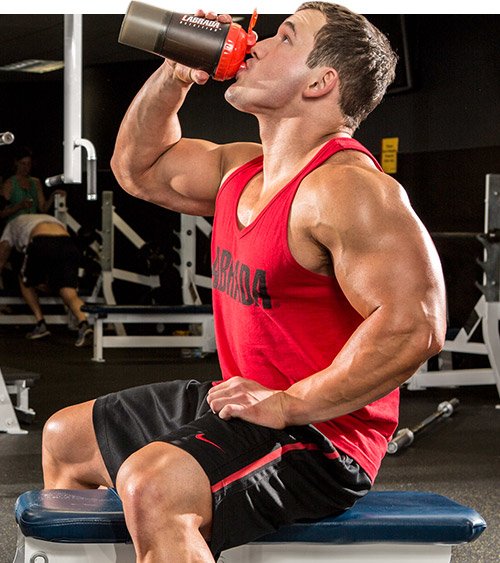
Your body's skeletal muscle is made up of approximately 75-80 percent water. It only makes sense that you need to drink enough to keep your muscles hydrated, as well as give your body what it needs to effectively process food and eliminate waste.
How much is enough? I recommend consuming a half a gallon of water per 100 grams of protein consumed per day at a minimum.
By keeping your body properly hydrated, you will be able to experience harder muscle contractions, and your body will be able to exert itself at a maximal level for longer.
As previously mentioned, properly hydrating your body will help it digest food and eliminate waste byproducts more efficiently, which is important because a high-protein diet like the one I'm recommending can be hard on your kidneys if you're constantly dehydrated.
Get Extra Calories From Supplemental and Healthy Fats
If you heed my previous advice about avoiding the dirty bulk, your diet will be relatively low in dietary fats. While I'm not a huge proponent of high-fat diets, I firmly believe—and research supports—that your body needs fats to optimize hormone production, have healthy cell membranes, and give you the healthiest looking hair, nails, and skin possible. Also, proper intake of dietary fats can actually increase your body's ability to burn fat and keep you leaner than without them while you're trying to gain weight.
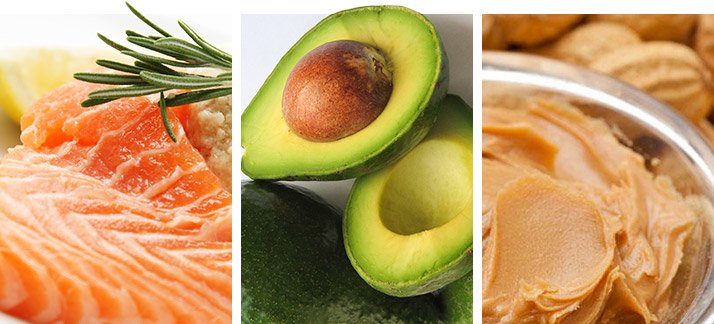
My favorite sources of healthy dietary fats are salmon, avocados, and nonprocessed nut butters. What I mean by nonprocessed is they don't contain a ton of preservatives, hydrogenated oils, or other ingredients other than nuts and salt.
I also strongly recommend consuming at least a teaspoon a day of a quality fish oil, as it is rich in EPA (eicosapentaenoic acid), DHA (docosahexaenoic acid) or omega-3 fatty acids, which are extremely beneficial for the aforementioned reasons. I recommend females consume between 40-60 grams a day of healthy fats. Males should aim for 60-100 grams.
Make Sure You're Sleeping Enough
This might be one of the most important and overlooked components of putting on quality size, or making any kind of progress in your physique, period. When you sleep, your body is in a resting state that consumes far less energy than when you are out and about and taking on your day.
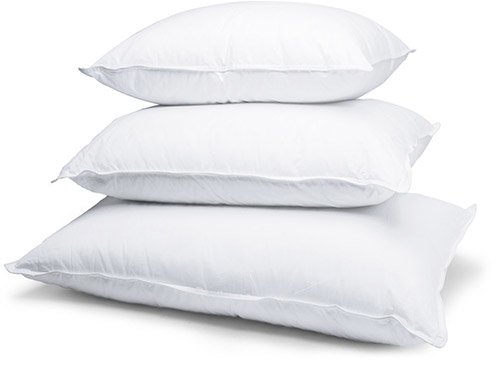
As a result, your body is able to devote more energy to the repair of damaged cells, as well as allow your brain to rest and replenish neurotransmitter chemicals responsible for a whole slew of functions in your body. Furthermore, your body's main release of growth hormone happens while sleeping—but only if you sleep enough!
Consequences of sleep deprivation include the depletion of your neurotransmitter chemicals, which can lead to mental fog, depression, and generally feeling subpar. Also, not sleeping enough can cause higher levels of cortisol, which is your body's stress hormone, and a catabolic hormone at that.
Aim to get at least 7-9 hours per night, depending on your body and how hard you're training. Before bed, consume some slow-digesting protein such as cottage cheese (low-fat or nonfat!), Greek yogurt, or a casein protein shake. This can help minimize muscle loss resulting from the fasted state you'll be in if you sleep long enough.
Keep Your Training Intense
When in a gaining phase (or cutting phase, to be honest), a lot of people make the mistake of taking overly long rest periods. This is a big mistake! In order to make a muscle grow, you must subject it to a stimulus it is not used to. In other words, the workout must be intense enough to make your muscle adapt.
I've come up with something I like to refer to as the intensity equation, and while it doesn't actually spit out a number, if you have a basic understanding of math, the illustration should really hit home:
Training Intensity = (Volume x Weight used)/Rest time
As the equation illustrates, your intensity is relative to how many reps and sets you perform (volume) with a given weight or weights, divided by your rest time. It really does nothing to your intensity to jack the amount of weight you're lifting way up if you can't perform the optimal number of reps for hypertrophy (muscle growth), which is 8-12, or you have to take an overly long period to recover. Overly long means anything longer than two minutes, in my opinion.

I personally never take longer than 90 seconds in between sets, even during my offseason phases. The only exceptions to this rule are squats, bent-over rows, and deadlifts, and I only make that exception on the last set or two when things get really heavy.
The reason I allow for longer rests between these kinds of lifts is that it takes much longer for your body to replenish the oxygen deficit caused by these intense compound movements. In this case, the rule of thumb I use is to allow my breathing to normalize. This indicates that my body has replenished its oxygen levels.
Measure Progress By More Than Just The Scale
I stress this tip to everyone I come in contact with, both men and women: The number on the scale just doesn't matter unless you're trying to make a weight class for whatever sport you do. I know that sounds counterintuitive, especially since we're discussing a gaining phase, but let's be honest: If the number on the scale is staying the same, but you're looking harder, leaner, or bigger in the mirror, something good is happening! It means you've found that sweet spot where you're gaining very minimal fat, but are gaining muscle. You don't look leaner without losing body fat. And if you're losing body fat, but the number on the scale is staying the same, what do you think is happening? Growth!
In addition to the "mirror check," I am a big believer in and proponent of taking regular (meaning, once a month) body-fat measurements with calipers, and circumference measurements of all body parts. I am very aware that calipers might not provide the most accurate initial estimation of body fat, but they do provide a fairly accurate measurement of relative change.
If you need help learning how to take a body-fat measurement using calipers as accurately as possible, this great tutorial has a built-in calculator.

